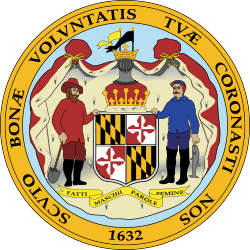| |||||||||||||||||
| |||||||||||||||||
The 1781 Maryland gubernatorial election was held on November 19, 1781, in order to elect the Governor of Maryland. Incumbent Governor Thomas Sim Lee was easily re-elected by the Maryland General Assembly as he ran unopposed. The exact results of this election are unknown. [1]

